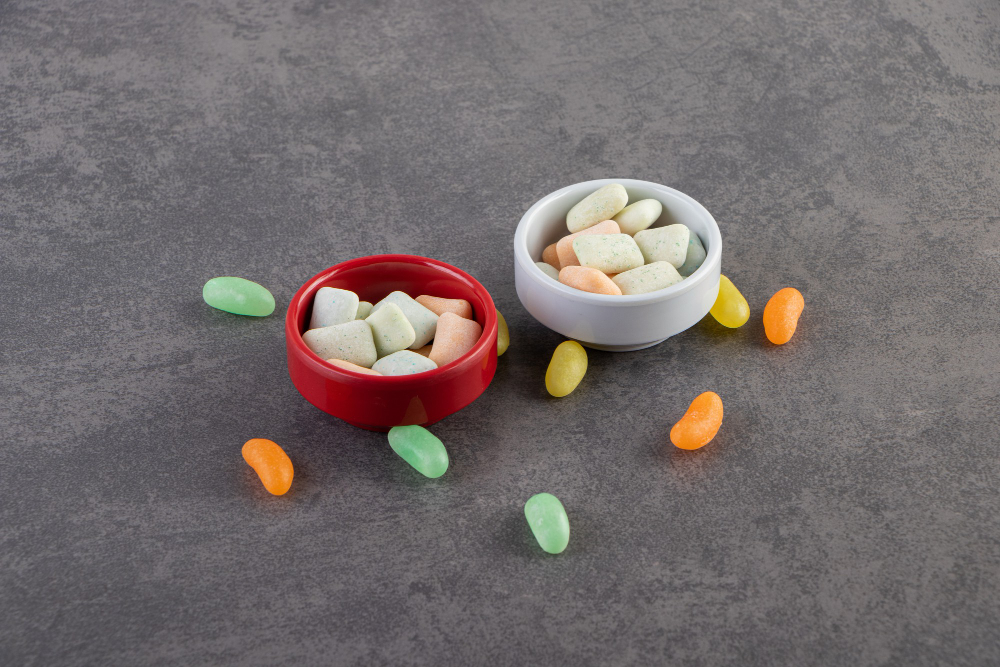The Impact of Sugar on Oral Health:
Sugar is one of the most significant threats to oral health. From cavities to tooth decay, the consumption of sugary foods and drinks can lead to a range of dental problems if proper precautions are not taken. Understanding how sugar affects your teeth and taking steps to minimize its impact can help maintain a healthy smile for years to come.
This article will explore the effects of sugar on oral health, how tooth decay develops, and practical strategies to protect your teeth from the harmful effects of sugar.
How Sugar Affects Your Oral Health
When you consume sugary foods or drinks, the sugar interacts with the bacteria in your mouth. These bacteria feed on the sugar and produce acids as a byproduct. Over time, these acids erode the enamel—the hard outer layer of your teeth—leading to tooth decay. Without intervention, this can eventually cause cavities, infections, and even tooth loss.
Here’s a step-by-step breakdown of how sugar impacts oral health:
1. Bacteria Feed on Sugar
Your mouth is full of bacteria, some of which are harmful to your oral health. When you eat sugary foods or drink sweetened beverages, the harmful bacteria feed on the sugar and produce acids.
2. Acid Production
The acids produced by the bacteria begin to break down the minerals in the tooth enamel. This process, known as demineralization, weakens the enamel and makes it more vulnerable to decay.
3. Tooth Decay
As the enamel continues to erode, cavities can form. Cavities are permanent holes in the teeth that require dental treatment to repair. If left untreated, the decay can progress to the inner layers of the tooth, causing pain, infection, and even tooth loss.
4. Plaque Buildup
Plaque is a sticky film of bacteria that forms on the teeth and gums. When you consume sugar, plaque bacteria produce more acids, accelerating the decay process. Plaque can also harden into tartar, which is more difficult to remove and can lead to gum disease.
The Types of Sugar That Harm Your Teeth
It’s not just table sugar (sucrose) that can damage your teeth; various forms of sugar found in foods and drinks can contribute to tooth decay. These include:
- Sucrose: Found in many processed foods, desserts, and sweets.
- Fructose: Naturally present in fruits but also found in high-fructose corn syrup, a common sweetener in soft drinks and processed foods.
- Glucose: Often used in sports drinks and energy products.
- Lactose: The natural sugar in milk, which can still contribute to decay if proper oral hygiene is not maintained.
Processed foods, sugary beverages, candy, and desserts often contain high amounts of these sugars, increasing your risk of dental problems.
Common Dental Problems Caused by Sugar
Consuming excessive sugar can lead to various dental issues, including:
1. Cavities
Cavities are the most common consequence of sugar consumption. They occur when the acids produced by bacteria erode the enamel, forming holes in the teeth.
2. Gum Disease (Gingivitis and Periodontitis)
The buildup of plaque caused by sugar consumption can lead to gum inflammation, known as gingivitis. If untreated, this can progress to periodontitis, a more severe form of gum disease that can result in tooth loss.
3. Tooth Sensitivity
As the enamel wears away, the inner layers of the tooth, known as dentin, become exposed. This can lead to tooth sensitivity, causing discomfort when eating or drinking hot, cold, or sweet foods.
4. Tooth Erosion
Erosion occurs when the acids in sugar-rich foods and drinks wear down the enamel, making teeth more vulnerable to decay and sensitivity.
How to Protect Your Teeth from Sugar
Although sugar can be harmful to your teeth, there are several ways to protect your oral health and minimize the damage. Here are some effective strategies to maintain strong, healthy teeth while enjoying your favorite foods in moderation.
1. Limit Sugar Intake
One of the most effective ways to protect your teeth is to reduce your sugar consumption. Try to limit sugary snacks, candies, sodas, and desserts, and choose healthier alternatives when possible. Foods like fresh fruits, vegetables, and nuts are better for your teeth and overall health.
Tip: Read labels to identify hidden sugars in processed foods. Look for terms like high-fructose corn syrup, glucose, or sucrose.
2. Brush and Floss Regularly
Good oral hygiene is essential in combating the effects of sugar. Brush your teeth twice a day with fluoride toothpaste, and floss daily to remove plaque and food particles from between your teeth.
Tip: Use a soft-bristled toothbrush and brush for at least two minutes, making sure to reach all areas of your mouth, including the back teeth and along the gumline.
3. Use Fluoride Products
Fluoride strengthens tooth enamel, making it more resistant to decay. Using fluoride toothpaste and drinking fluoridated water can help prevent cavities and strengthen your teeth.
Tip: If your local water supply is not fluoridated, consider using fluoride mouthwash or talking to your dentist about fluoride treatments.
4. Rinse After Eating Sugary Foods
If you indulge in sugary foods or drinks, rinsing your mouth with water afterward can help wash away the sugar and reduce the risk of decay. This simple step can neutralize some of the acids produced by bacteria.
Tip: If possible, wait about 30 minutes after consuming sugary or acidic foods before brushing your teeth to avoid damaging the softened enamel.
5. Chew Sugar-Free Gum
Chewing sugar-free gum, especially those containing xylitol, can stimulate saliva production. Saliva helps neutralize acids, wash away food particles, and strengthen tooth enamel by replenishing minerals.
Tip: Chew sugar-free gum for about 20 minutes after meals to reduce the risk of cavities and freshen your breath.
6. Stay Hydrated
Drinking plenty of water, especially fluoridated water, helps keep your mouth hydrated and rinses away food particles and sugars. Water also helps maintain saliva flow, which is crucial for neutralizing acids.
Tip: Replace sugary beverages like soda, juice, and energy drinks with water or unsweetened tea to minimize sugar exposure.
7. Visit Your Dentist Regularly
Regular dental check-ups and professional cleanings are vital in preventing tooth decay and identifying potential issues early. Your dentist can detect cavities, remove plaque buildup, and provide fluoride treatments to protect your teeth.
Tip: Schedule dental visits at least twice a year for check-ups and cleanings, and consult your dentist if you experience any dental discomfort or sensitivity.
Conclusion
Sugar has a significant impact on oral health, leading to tooth decay, cavities, gum disease, and other dental problems. However, with proper care and preventive measures, you can protect your teeth and minimize the damage caused by sugar. Limiting sugar intake, practicing good oral hygiene, using fluoride products, and visiting your dentist regularly are essential steps to maintaining a healthy smile.
You Might Also Interested In: Proven Marketing Solution



